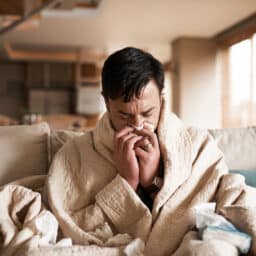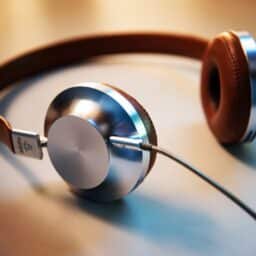Tips To Help Your Child Adjust To Hearing Aids

Change can be difficult for many children, and adapting to hearing aids is no exception. Approximately 14.9% of children ages six to 19 have low- or high-frequency hearing loss of at least 16 decibels in one or both ears. One way to help your child through their experience with hearing loss is to give them…
Can Yoga and Meditation Provide Tinnitus Relief?

Tinnitus, the experience of hearing ringing in one or both ears, can result in stress and frustration. In addition to ringing, tinnitus symptoms could also include buzzing, clicking or roaring. About 10% of the U.S. population has experienced tinnitus lasting at least five minutes in the past year. Recent studies have shown that practicing yoga…
Audiology Awareness Month: Four Activities That Can Benefit Your Hearing Health

October is Audiology Awareness Month, which makes it the perfect time to highlight various ways that you can be proactive and benefit your hearing health. Turn the Volume Down Exposure to loud noise is one of the leading causes of hearing loss. It can happen from a single exposure to an extremely loud noise or…
Tips for Solo Travelers With Hearing Loss

Summer is the perfect time for traveling, whether in a group or visiting somewhere new alone. Exploring a new location isn’t just fun and rewarding, but studies have shown that it also is important for socialization and overall health. If you have hearing loss, you may feel intimidated by the thought of traveling by yourself….
How to Avoid Social Isolation When You Have Hearing Loss

Social isolation is an extremely common side effect of untreated hearing loss. This is because, when you can’t hear well, it’s all too easy to withdraw from people and activities you once enjoyed. Since social isolation is a risk factor for more serious conditions like depression and dementia, it is essential to address the underlying…
What Are The Differences Between Conductive and Sensorineural Hearing Loss?

It may surprise you to learn that there are actually different types of hearing loss. Let’s examine the differences between conductive and sensorineural hearing loss, including the potential causes and treatment options for each. Sensorineural and Conductive Hearing Loss Have Different Causes While both impact your ability to hear, sensorineural and conductive hearing loss have…
Can Colds Cause Hearing Loss?

There’s a reason they call it the common cold. According to the Centers for Disease Control and Prevention (CDC), “adults have an average of 2-3 colds per year, and children have even more.” Most of us are familiar with nasal congestion, runny nose, cough, sore throat and other traditional symptoms that come with getting a…
Are My Headphones Too Loud?

The World Health Organization (WHO) reports that, “Over 1 billion young adults are at risk of permanent, avoidable hearing loss due to unsafe listening practices” when listening to music and other media through earbuds and headphones. Below we review how to tell if you’re at risk of noise-induced hearing loss and provide tips for listening…
Daycare and Children With Severe Hearing Loss

All parents want to make sure that their child’s daycare facility is able to provide proper care and meet all of their needs. If your child has severe hearing loss, you may be curious as to how daycares can accommodate them. Reasonable Accommodations Required by Law The Americans with Disabilities Act (ADA) ensures that childcare…
Learn About the History of Audiology Awareness Month

We have exciting news! October is Audiology Awareness Month, which means there’s no better time to take the initiative to care for your hearing health than now. To start the month off, we’re reviewing the history of Audiology Awareness month in this post. The History of Audiology Awareness Month It all started back in 2008,…